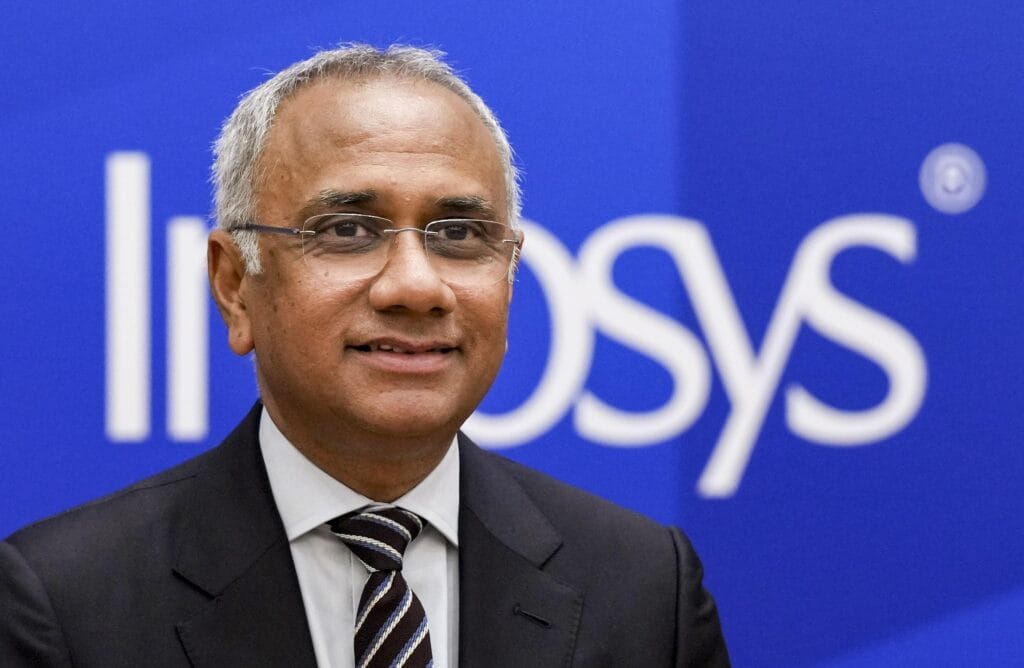Alexander Caedmon Karp, born on October 2, 1967, in New York, is a visionary businessman widely recognized for his contributions to data analysis and national security. After an extensive education in philosophy under the tutelage of Jürgen Habermas and a degree in art from Haverford College, Karp has established himself as a key player in the technology field by co-founding Palantir Technologies. The company, named after the “seeing stone” from fantasy narratives, has become a pillar of big data by collaborating with the CIA and other strategic entities. Today, Alex Karp leads Palantir with a forward-thinking approach, affirming his status as a leader in the sector and a regular in influential economic circles such as the Davos forum.
Table des matières
ToggleBiography of Alex Karp: Visionary in Data Analysis and National Security
Born on October 2, 1967, in New York, Alexander Caedmon Karp, better known as Alex Karp, is the co-founder and CEO of Palantir Technologies, a company specialized in data analysis. His journey is marked by a strong academic background, having studied at Haverford College before obtaining a degree in German philosophy in Frankfurt under the tutelage of the famous philosopher Jürgen Habermas. This atypical training for a tech executive provides Karp with a unique perspective that informs his innovative approach in the technology sector.
In 2003, Alex Karp co-founded Palantir, a company that has gained considerable strategic importance in the fields of big data and national security. With initial support from the CIA, the company has become an essential player in data analysis, with applications ranging from national defense to commercial initiatives. The name “Palantir” is inspired by the “seeing stones” from Tolkien’s universe, symbolizing the company’s ability to bring visionary clarity to its clients.
An eccentric and visionary personality, Karp is a regular at the World Economic Forum in Davos, where he shares his thoughts on the future of technology and global security. He has positioned Palantir as a key interlocutor in complex situations, as he recently stated in an interview: Ukrainians are using his software for military strategies. Thus, Alex Karp continues to influence the global technological landscape and demonstrates the power of innovation combined with data analysis.

Academic Background and Early Career
Alexander C. Karp, better known as Alex Karp, was born on October 2, 1967, in New York. He has built an exceptional reputation in the technology sector thanks to a background marked by impressive academic training. Graduating from Haverford College in 1989 with a B.A. in art, Karp then pursued further education by obtaining a law degree from Stanford Law School. To enhance his education, he chose to study philosophy in Germany under the tutelage of the famous philosopher Jürgen Habermas.
Co-founder of a Revolutionary Company
In 2003, Alex Karp, in collaboration with other visionaries, co-founded Palantir Technologies. The company, which takes its name from the “seeing stone” of Tolkien’s universe, has become a dominant player in the field of data analysis. From its inception, Palantir garnered support from influential organizations, including the CIA, thanks to its unique capabilities in processing large amounts of information. Karp’s role as CEO has been crucial in leading the company to international success.
Current Influence and Engagements
As a leader, Alex Karp has positioned Palantir at the center of discussions regarding big data and national security. Often described as the “best-informed man on the planet,” his influence extends far beyond the traditional business realm, becoming a regular speaker at global economic forums such as Davos. His commitment is showcased through the promotion of innovative solutions that transform how data is perceived and used for national security, as illustrated here with their use in Ukraine. His journey is often narrated as that of an eccentric yet wealthy leader, accumulating wealth and influence through his insights into technology. Read more about the challenges facing Palantir and its role on the international stage.





